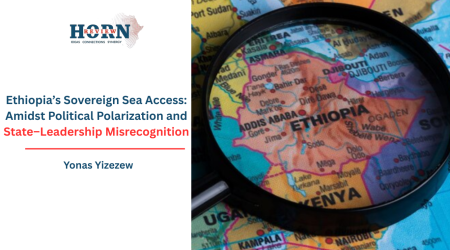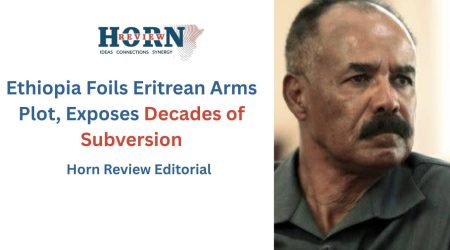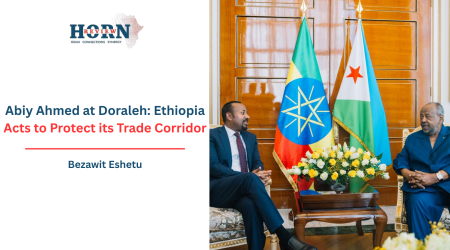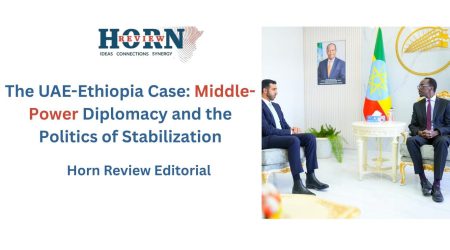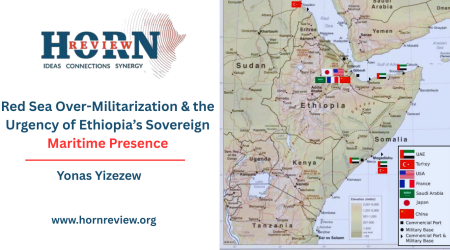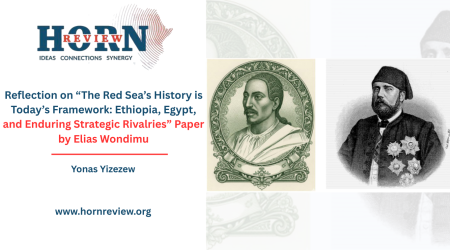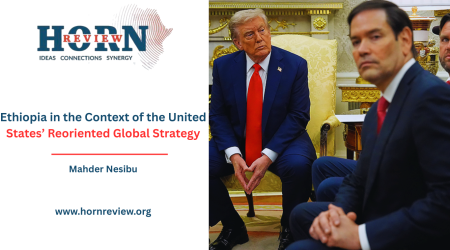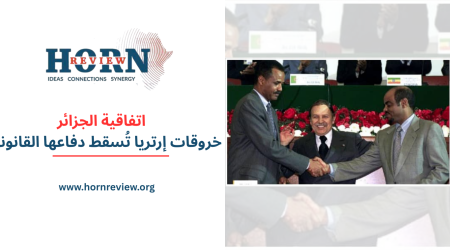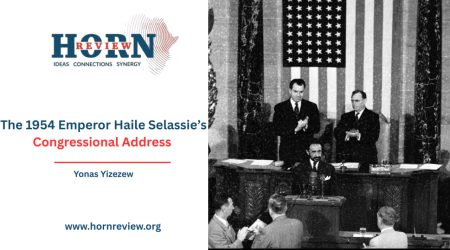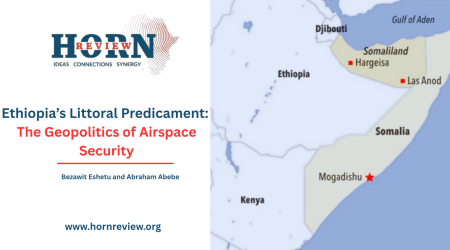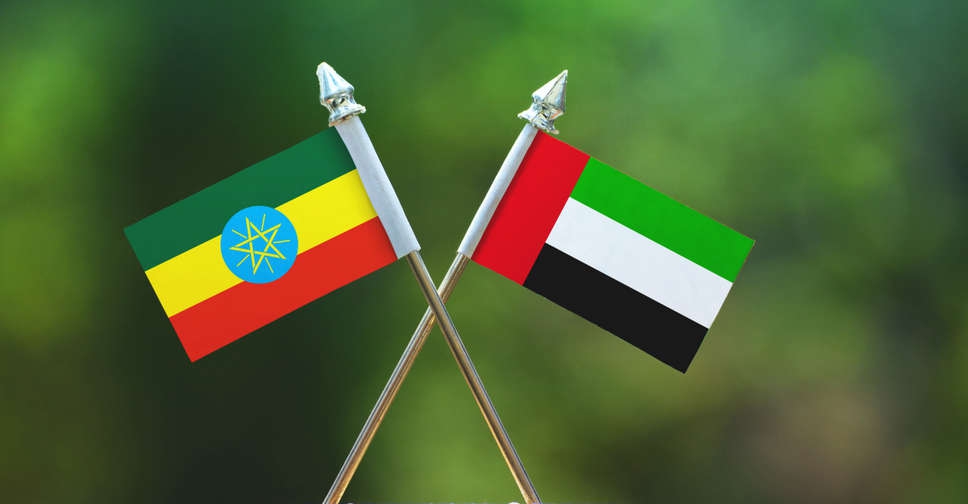
13
Jul
Shared Stakes: Reimagining Power and Partnership Between Ethiopia and the UAE
Over the past half-century, the United Arab Emirates has transformed itself from a small cluster of oil-rich sheikhdoms into a confident middle power. Its economy, once almost entirely hydrocarbon‐based, has diversified into logistics, tourism, real estate and technology, making the UAE today the second-largest Arab economy. The country fields a highly capable military and even manufactures its own missiles and advanced drones. This has earned it the nickname “the Sparta of the Arab world.” This combination of wealth and firepower underpinned a traditionally assertive foreign policy. During the 2010s Abu Dhabi pursued a strategy that melded commercial expansion, notably through its state-linked port operator DP World, with direct security action. It sent troops and airstrikes to Libya and Yemen, helped build foreign military bases, and backed allied militias. It positioned itself as a counterweight to Iran and Islamist movements in the region.
By the early 2020s the UAE began to pull back from its outward military adventurism. Analysts noted a scaling down of its footprint. The UAE withdrew combat units from Yemen and halted support to some Libyan militias. It gave up its base at Assab in Eritrea. In place of power projection, Abu Dhabi pivoted to a more distant style of influence. In Yemen, for example, the UAE largely honored a unilateral ceasefire announced in 2019 and shifted into a diplomatic posture. It supported Gulf-led peace talks rather than open warfare. The UAE had once used hard power aggressively. Today it is more inclined to rely on economic leverage and allied proxies. It has taken a calmer, resource-based approach where state assets back friendly governments and groups rather than acting unilaterally with boots on the ground.
At the same time, Abu Dhabi remains fully engaged in the Middle East’s strategic rivalries. It continues to be wary of Iran and of any re-emergent Islamic extremism, and remains closely allied with Saudi Arabia and Egypt in a regional bloc. It also finds itself contending with Turkey’s ambitions and, to a lesser degree, Qatar’s independent and somewhat rogue policies. Yet these rivalries have taken on a more nuanced character. The UAE spearheaded the 2020 Abraham Accords normalizing relations with Israel.
This move deepened its alignment with Washington and built a coalition against perceived threats like Iran. Since the 2020s Abu Dhabi has actively pursued a detente with Iran. Despite the posturing, the UAE uniquely stands as more pragmatic in its relationship with Tehran. In parallel, the UAE mended fences with Qatar and sought a modest reconciliation with Ankara, driven by pragmatic interests rather than ideology. The UAE now navigates these relationships carefully. It mixes occasional cooperation with competition. Its focus is on economic connectivity and mutual interests even as underlying strategic competition endures. The Abu Dhabi government has described this shift as moving from power projection to power protection. It wields influence with investment and alliances as much as with arms.
In the Horn of Africa this pragmatic posture is visible in the UAE’s competition with Turkey and Iran for influence. Turkey has become a leading partner for Somalia and an advocate of Somali territorial integrity. The UAE has deepened ties with Ethiopia and with breakaway Somaliland. Somalia objects to any Ethiopian access to Somaliland and has actively courted Turkey to counter Abu Dhabi’s moves. This gives Ankara a chance to expand its role on the Red Sea coast. The rivalry is strategic. Both Turkey and the UAE are vying to gain the favour of Horn states by promising investment and security assistance in exchange for political influence and economic concessions. Yet it is mostly a competition of hearts-and-minds and dollars, not a shooting war between the middle eastern powers. On the diplomatic front, Abu Dhabi continues to coordinate with regional partners while quietly undercutting rival influences. On the economic front, it offers funding and investment to allies like Ethiopia.
On the security front it supplies training and arms to friendly governments. This stands in contrast to some other Gulf states. The UAE uses force when needed but increasingly relies on the soft power of capital and contracts.
The UAE’s military strength is in large part a product of its close alliance with the United States. Over the past decade the UAE has spent tens of billions on advanced U.S. weaponry. With the first Trump administration, the U.S-Gulf relationship had flourished. Trump’s policies helped seal the Abraham Accords and led to several large arms deals. This, along with its domestic firepower, boosted Abu Dhabi’s confidence and its capacity to back ambitious foreign ventures.
This blend of commerce and strategy is most apparent in the UAE’s Africa engagement. Between 2019 and 2023 Emirati companies announced over a hundred billion dollars in African projects, with a large share going into renewable energy. Dubai’s main port operator, DP World, has been at the centre of this push. DP World today manages operations in at least six African seaports, including in Egypt and Senegal, and is planning new terminals in others. Parallel Emirati efforts include Abu Dhabi’s Masdar and its sovereign investment funds financing wind and solar farms across the Sahel and southern Africa. Emirates Airline links more than 20 African capitals to Dubai.
The stated goals are connectivity and market integration. Every new pipeline, grid or port becomes a two-way street. It draws African trade and resources into the UAE’s orbit and helps diversify the Emirati economy. Each of these assets also serves as strategic infrastructure. They secure supply chains and shipping lanes that Abu Dhabi cares about. The UAE has turned Africa itself into a theatre of its foreign policy, applying diplomatic outreach and capital to win influence in the heart of the Red Sea world.
The Horn of Africa reflects this strategic calculus. The narrow Bab al-Mandeb strait between Yemen and Djibouti is a global chokepoint. Control of Red Sea and Gulf of Aden coasts is paramount. The UAE has invested accordingly. In Somaliland’s port city of Berbera, DP World secured a 30-year concession and took a majority stake in 2018, with Ethiopia even initially granted a 19 percent share, which however failed to materialize. Berbera’s deepwater harbor is being expanded into a trade hub partly meant to serve landlocked Ethiopia. Across the Red Sea in Egypt, Abu Dhabi Ports is developing new facilities on the Gulf of Suez and at Safaga and has signed long-term agreements for major cruise and cargo terminals. The UAE also leveraged its wealth to build security ties. It trained Somalia’s coast guards and funds anti-piracy efforts. It provided border-surveillance equipment to partners. For years Abu Dhabi co-financed a military base at Assab in Eritrea until the end of the intervention in Yemen led to its closure.
The UAE tends to support local actors whose interests align with its own. It also strengthens ties to governments it sees as stable or pro-business. It backs a mix of capitals and breakaway regions alike. The UAE has courted separatist or semi-autonomous entities like Somaliland and even factions in Sudan to secure political interests and resource projects. It has also deepened bilateral relations with national governments that can protect its investments. In Sudan, for example, it has given military aid to the Rapid Support Forces to guard its ventures in Darfur. In Eritrea and Ethiopia, historically rival neighbors, Abu Dhabi has played a hands-on role in rapprochement. It used both incentives and diplomacy to get Asmara and Addis Ababa on better terms. The deterioration of relations between the two neighbors however was setback to the UAE’s ambitions to build a web of influence in the region.
For the Emiratis, the closest alliance in the Horn is with Ethiopia. Addis Ababa is by far the region’s largest country, and the UAE has treated Ethiopia as a vital partner. Even before Prime Minister Abiy Ahmed’s rise in 2018, Abu Dhabi saw Ethiopia’s value. Since Abiy came to power, ties have deepened dramatically. The UAE extended a major aid and investment package to help jumpstart Abiy’s reforms. That aid quickly expanded into far-reaching cooperation. The UAE now trains Ethiopia’s elite Republican Guard and supplies modern weapons to Addis. During the Tigray civil war UAE-made combat drones and other arms reportedly tipped the balance in favour of the federal government.
Abu Dhabi has energetically supported Abiy’s government, financially, diplomatically, and militarily, as it stabilizes Ethiopia. Ethiopian leaders have welcomed this partnership. Ethiopia’s growth and agricultural potential are valuable to the UAE’s economy. A stable, friendly Ethiopia gives the Emirates a powerful foothold in the Horn. By backing Addis and its ambitions in the region, the UAE gains influence over the horn, its Red Sea trade routes and counterterrorism initiatives. It also builds leverage against regional rivals and strengthens its position on the other side of the critical maritime route.
The UAE’s foreign policy today is remarkably organized and ambitious. It has not retreated from the region but has repackaged its influence through infrastructure, investment and proxy alliances. For Ethiopia, this has meant an influx of Gulf capital and training, and tangible support for its goal of a Red Sea port. Abu Dhabi’s economic diplomacy, exemplified by DP World’s Horn ports and Emirates’ flight network, directly serves Ethiopia’s connectivity needs. Its military support helps Addis hold the line domestically. Abu Dhabi has made itself a pivotal backer of Ethiopia’s quest for access to the sea. This reflects the UAE’s broader design. It aims to weave a web of aligned states along the Red Sea, securing critical routes and resources. Addis Ababa benefits from a powerful patron in the Gulf, and the UAE advances its strategic reach in one of the world’s most important maritime theatres.
By Surafel Tesfaye,Researcher,Horn Review
Further Reading
Al Qassemi, S. (2021). The Rise of the UAE as a Middle Power. The Cairo Review of Global Affairs.
Bishara, M. (2023). Gulf Detente: Why the UAE Is Rebuilding Ties with Iran and Turkey. Stimson Center.
Goldberg, J. (2021). The Abraham Accords and U.S. Foreign Policy. Baker Institute for Public Policy.
International Crisis Group. (2024). Gulf Rivalries in the Red Sea Arena. ICG Middle East Report.
Mollman, S. (2023). UAE’s Infrastructure Investments in Africa. The Guardian.
Reuters Staff. (2025, May). Abu Dhabi Ports Expands Red Sea Presence in Egypt. Reuters.
SWP. (2025, March). The UAE-Ethiopia Alliance: Deepening Gulf Influence in the Horn of Africa. Stiftung Wissenschaft und Politik (SWP).

